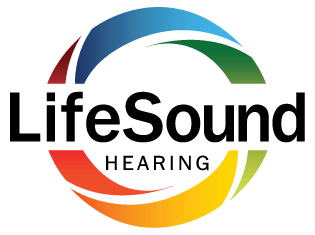Hearing aids are vital for strengthening daily communication by boosting the clarity of sound. To keep them functioning at their best, routine maintenance and professional cleanings are crucial. Over time, earwax, moisture, and debris can accumulate, resulting in reduced functionality. Recognizing when it is time to arrange professional maintenance can help prolong the life of your hearing aids and ensure they continue to operate at their best.
Why it’s important to have your hearing aids professionally cleaned
Even with regular at-home care, hearing aids gradually collect accumulation that might affect sound quality and performance. Routine upkeep provides a number of advantages:
- Deep Cleaning– Removes earwax, dust, and moisture that everyday cleaning tools may not effectively remove.
- Increased Performance– Removes blockages that can cause dampened sound or distortion.
- Extended Lifespan– Prevents early wear and tear, decreasing the need for repair work or replacements.
Getting your hearing aids cleaned by a specialist helps ensure they work at their best, reducing the likelihood of unexpected breakdowns.
Indications your hearing aids need professional servicing
If you’re not sure whether it’s time for a professional cleaning, look for these typical warning signs:
-
- Muffled or Distorted Sound: If voices and ambient sounds seem unclear, dull, or distorted, it might be due to wax or debris obstructing the microphone or speaker.
- Relentless Whistling or Feedback: A high-pitched whistling sound (feedback) can signify wax buildup or an improper fit. Professional cleaning can help in removing obstructions and fine-tuning the fit accurately.
- Issues with Volume Control: If adjusting the volume doesn’t seem to have the intended effect, internal components may require repair or software recalibration.
- High humidity can impact the device’s internal components, resulting in random audio interruptions or unreliable button control. A professional repair professional can assess and resolve any moisture-related issues.
- If you observe a noticeable increase of earwax or dirt on your hearing aids, it is encouraged to have them professionally cleaned for a more extensive removal compared to cleaning them at home.
What does a professional hearing aid cleaning look like?
A professional cleaning appointment goes past standard upkeep and ensures your devices function efficiently. Here a number of things your hearing specialist will accomplish during a cleaning:
-
-
- Employ specialized instruments to carefully extract wax, debris, and moisture from sensitive elements without doing damage.
- Confirm the proper performance by inspecting and repairing any broken parts.
- Assess software and hardware for any performance problems affecting sound quality.
- Replace any tubing or filters that may be affecting the performance of the device.
-
How frequently should you schedule professional upkeep?
The frequency of professional cleanings relies on factors including earwax production, moisture levels, and usage habits. Frequently suggested best practices are:
-
-
- Every 3 to 6 months for routine maintenance.
- More frequent cleanings are recommended for individuals prone to excessive earwax buildup or those living in humid settings.
- As soon as problems arise, dealing with modest issues early can avoid costly repairs.
-
Maintain your hearing aids for ideal performance
To keep your hearing aids functioning optimally and delivering crisp, clear audio, it’s essential to schedule routine check-ups and maintenance with a hearing care professional.
If distorted sound, echoing, or technical problems are interrupting your experience, it’s likely that a thorough, expert cleaning is in order.
Schedule your hearing aid cleaning and maintenance today.

